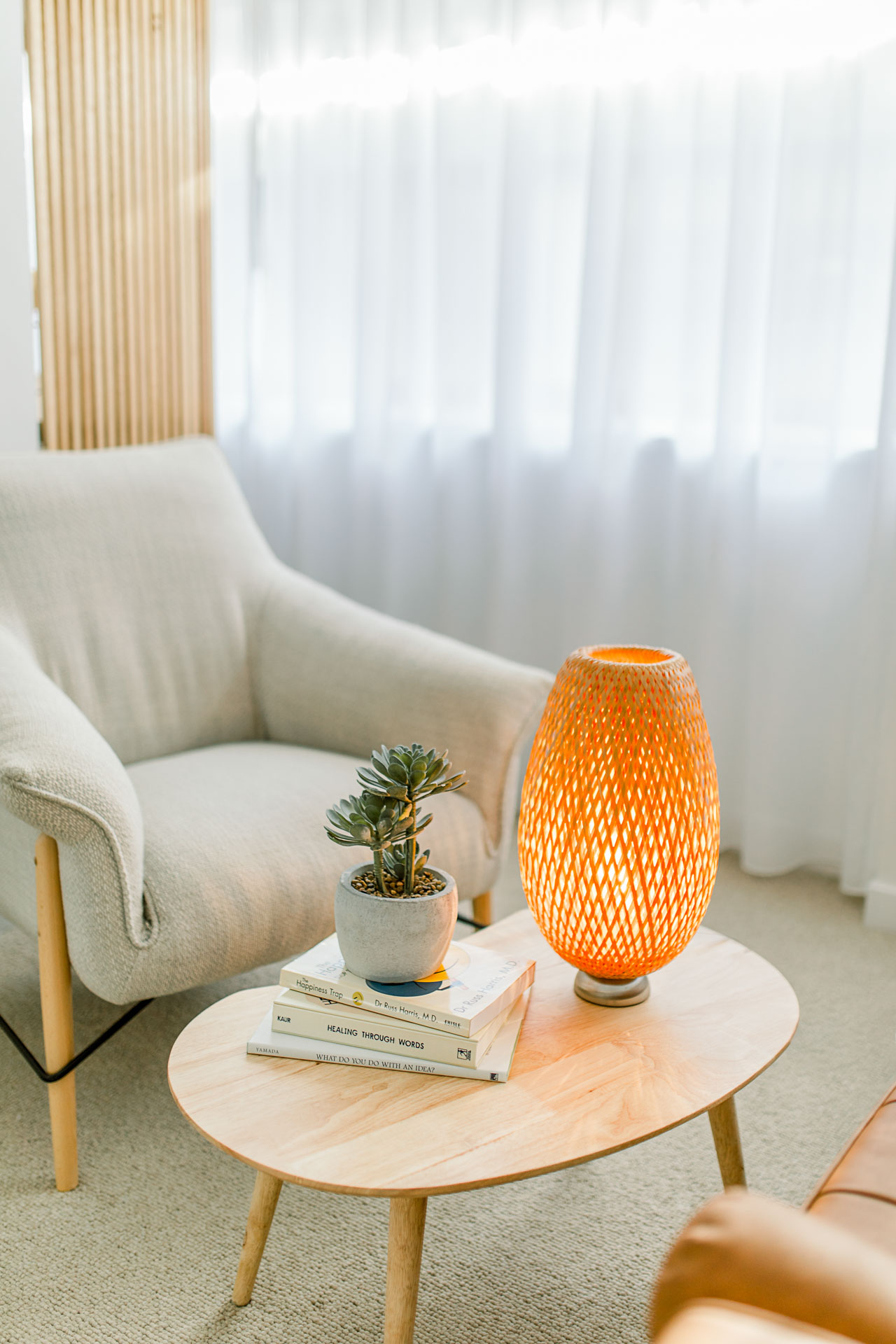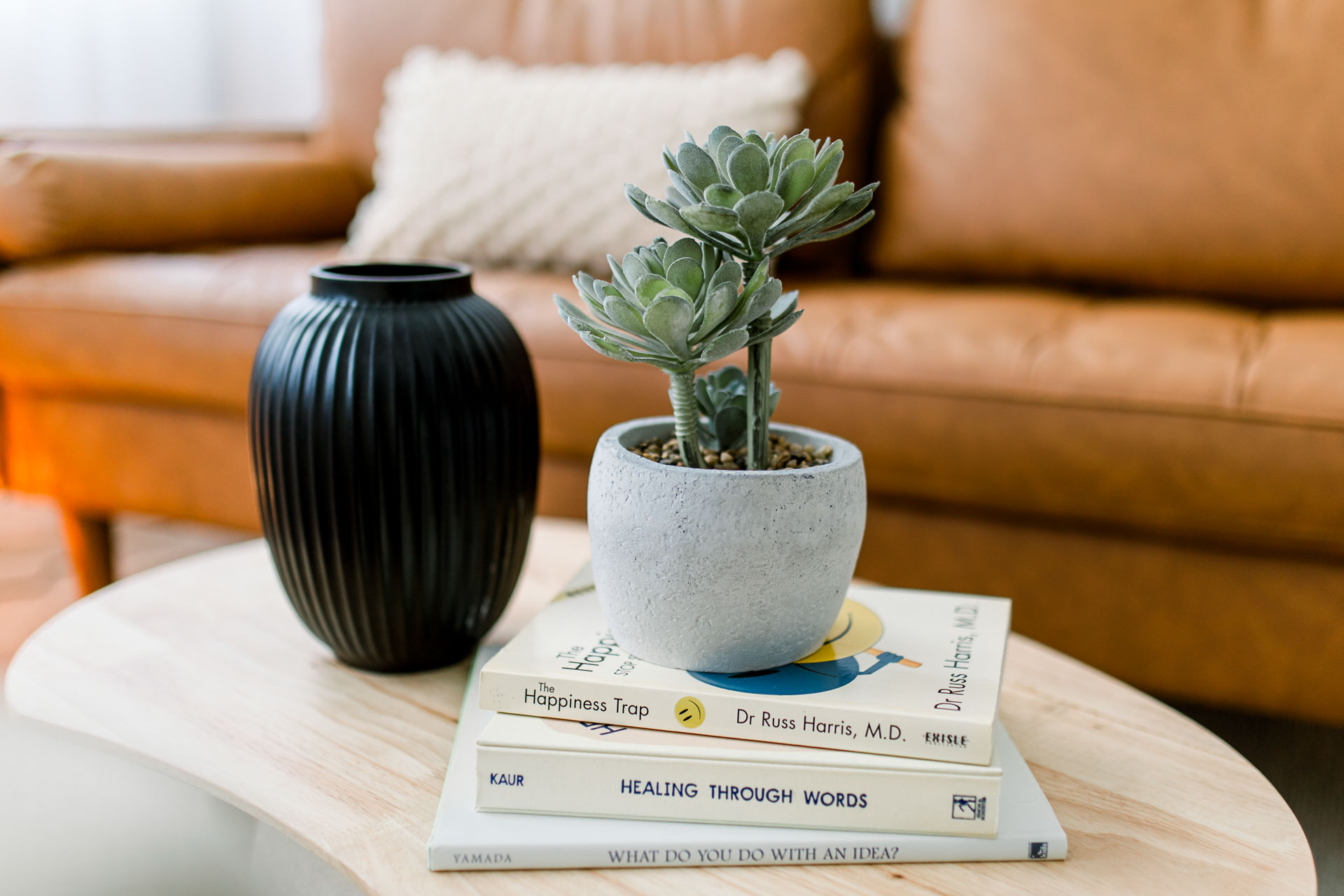Why sharing a coworking space works

- Rethinking how we practice Allied Health
- The real value behind shared practice spaces
- Benefits of coworking spaces
Key takeaways
- Coworking gives you the structure of a professional clinic without the overheads of going it alone.
- You’re part of a community, which means more chances to connect, refer, and learn from others in your field.
- Clients love the convenience of seeing multiple practitioners in one place—it saves them time and builds trust in your setup.
- Working in a thoughtfully designed space helps you feel more motivated, focused, and like a professional.
<div id="section-1">Rethinking how we practice Allied Health</div>
Private practices are evolving; they're no longer bound to rigid 9- 5s in traditional offices and clinics. Today's practitioners are more mobile, more collaborative and becoming increasingly open to collaboration and community impact.
But amid all this change, one question stands out:
What if we could work better, not just alone, but together?
Coworking in the health care industry is more than just sharing an office space; it's about building a smarter, shared ecosystem where independent practitioners support each other, increase productivity and create better outcomes for not just themselves but their clients as well. It's about redefining private practice as a connected, future-ready way to work.
With more coworking spaces popping up across Australia—and growing demand in regional and suburban areas—it’s clear this model isn’t just for tech startups or creatives anymore.
In fact, the total full-time equivalent (FTE) workforce for allied health professionals reportedly rose by 72% between 2013 and 2022, reflecting a sharp increase in clinicians entering or expanding their careers. That kind of growth calls for workspaces that are just as adaptable—spaces that support flexibility, collaboration and community without the long-term lock-in of a traditional lease.
More and more health professionals are getting on board. Psychologists, physios, OTs, dietitians, you name it, are choosing to work in shared practice spaces that suit how we live and work today. It’s flexible, collaborative and makes a lot more sense than going it alone.
<div id="section-2">The real value behind shared practice spaces</div>
When it comes to sharing an office space, most people think about the general basics—lower costs, more flexibility, less risk. And yes, coworking absolutely makes financial sense, there's no doubt about it. You’re not stuck in a long lease or juggling overheads on your own. You only pay for what you need and can scale up or down as your practice grows.
It’s especially helpful if you’re just starting out, expanding into a new area, or simply want a more manageable setup. But what many don’t realise is that the real benefits of coworking spaces go far beyond the cost savings.
You get more than just a space. You tap into a shared support system. From warm welcomes at reception to fully equipped, modern meeting rooms, everything is set up so you can focus on what you do best. Add to that a community of like-minded coworking professionals, and suddenly, work feels less isolating and a lot more rewarding.
It’s not just about making your day easier. It also creates a better experience for your clients. This isn’t just office-sharing. It’s a smarter, more connected way to practice that provides various benefits for both you and your clients.
<div id="section-3">Benefits of coworking spaces</div>
So, what does coworking actually look like in action? Here are just a few of the many benefits practitioners are discovering every day.
<div id="section-4"> 1. Shared spaces, shared connectivity </div>
In conventional office environments, collaboration often takes effort—scheduled meetings, referral emails, and phone tag. In a shared space, it’s built in. Being surrounded by OTs, physios, psychologists, dietitians, and other allied health professionals creates daily opportunities for organic connection. From hallway conversations to after-hours networking events, coworking spaces make it easy to build relationships with trusted practitioners who broaden your thinking and extend your circle of care.
These day-to-day interactions might feel casual, but they often become meaningful connections, creating a mini health ecosystem where care becomes more holistic and collaborative. In this environment, practitioners don't just work alongside each other—they learn, refer, and evolve together.
Coworking isn’t just a practical solution. It’s a shift toward a more connected model of care, where collaboration, not competition, drives professional growth and better outcomes for clients.
<div id="section-5"> 2. Independence without isolation </div>
Many allied health professionals are drawn to private practice for the freedom it offers. Being your own boss, setting your own flexible working hours, building something of your own—it’s incredibly rewarding. But it can also be lonely, especially for sole traders or clinicians just starting out.
Coworking spaces offer the best of both worlds. You’re still running your own practice, but you’re not doing it in a vacuum. You’ve got people to chat with between sessions, peers to learn from, and a community that understands the ups and downs of the work.
It’s solo practice without the solo struggle, adding genuine human connection to an industry that, at times, can feel isolating.
<div id="section-6"> 3. Improved work-life balance & mental health </div>
It’s no secret that traditional office spaces can be draining. Dedicated desks, rigid hours, and a lack of personalisation often make it hard to feel comfortable or in control of your environment, especially if you are working for a large company and don't have the opportunity to connect with those around you. Over time, that can take a real toll on your mental health and overall job satisfaction. The toll goes both ways; fully remote workers often feel isolated too, especially when working from spaces meant for rest, not productivity.
Coworking offers a more balanced alternative. You can create a consistent, private space for you and your clients, without the stress of hot desking, constantly adapting to someone else’s setup or trying to switch off once you finish working from home. It gives you the stability and autonomy you need to focus, recharge and do your best work.
When your environment supports you, everything flows better. You feel more motivated, less overwhelmed and more connected to your purpose. It’s a smarter way to work—one that prioritises your wellbeing as much as your productivity.

<div id="section-7"> 4. Shared costs relieve the burden </div>
Running your own practice shouldn’t mean running yourself ragged behind the scenes.
Choosing a coworking environment within a health-focused setting gives you access to more than just a physical space; it gives you infrastructure. Shared reception, private offices, equipment, admin support, high-speed internet, utilities, practice systems, and more are all part of the package.
These flexible workspaces are designed with solo practitioners and small business owners in mind. By pooling resources, you remove the burden of managing overheads alone while gaining the professional polish and operational support that usually comes with a much larger corporation.
It’s not just about cutting costs, it’s about working smarter. You spend less time on logistics and more time with your clients. You stay in control of your own hours and caseload, but without the isolation or inefficiencies that often come with private practice.
For early-career clinicians, those transitioning into solo work, or anyone building a more flexible model of care, this setup offers room to grow, without the pressure of doing it all yourself.
<div id="section-8"> 5. Different perspectives</div>
There’s something powerful about working alongside others who get it. In a coworking environment built for health professionals, you’re not just renting a room or using hot desks—you’re stepping into a space designed to support the way you learn, grow and deliver care. You’ll naturally pick up on how others operate. Different approaches, tools, systems, and client interactions mean you’ll also gain new insight into how you work best.
The physical environment you work in matters more than most people realise. It can shape your mindset, influence your energy, and even shift how you connect with clients. A well-designed space doesn’t just look professional—it helps you feel more professional too.
And while everyone has a separate space or serviced office, coworking doesn’t mean confinement. These are flexible workspaces that adapt as your practice evolves. Whether you're starting small, looking to collaborate, or planning to scale, coworking gives you an environment that supports your goals—and a community that makes growth feel natural, not forced.
<div id="section-9">6. Increased client trust </div>
A professional environment plays a key role in how clients perceive the quality of care. Operating from shared workspaces allows you to present a consistent, professional image, regardless of your team size. From reception and waiting areas to accessible facilities and fully furnished meeting rooms, clients experience a level of professionalism that builds immediate confidence.
It also simplifies their journey. When you and other professionals offer complementary services under one roof, clients avoid the need to travel between multiple locations. This integrated experience not only saves them time but reinforces the sense of coordinated, reliable care.
For practitioners, informal networking opportunities with others in the shared environment can lead to collaborative care models and streamlined referrals—benefits that directly improve client outcomes.
In short, coworking enhances your credibility, supports your clients’ needs, and strengthens the trust that is the foundation of every effective therapeutic relationship.
<div id="section-10"> Shared coworking environments benefit the whole industry <div>
Coworking doesn’t just make life easier for individual clinicians; it has ripple effects that benefit the entire health and well-being sector.
By lowering the financial and logistical barriers to starting a private practice, more practitioners can step into the field with confidence. That means more availability, more choice, more innovative startups emerging and better access to care, especially for clients in areas where services are often limited.
Shared spaces also make it easier to expand into underserved suburbs or regional communities without the huge upfront investment of a traditional lease. Whether it’s rotating teams across locations, setting up outreach days, or blending in telehealth, coworking spaces make these kinds of responsive, community-first models much more achievable.
Ultimately, when it’s easier for good clinicians to do good work, everyone wins—clients, communities and the future of care itself.
<div id="section-11"> Thinking about a coworking space for your private practice? <div>
Coworking environments are a way of working that makes more sense for today’s allied health professionals. If you’re looking for flexibility, connection, and a setup that supports both you and your clients, shared practice spaces might be the right next step.
At Kiah Place, you’ll find thoughtfully designed consulting rooms, shared amenities, and a welcoming community of professionals, including psychologists, OTs, physios and more. Whether you’re new to private practice or ready to reimagine the way you work, it’s a space that grows with you.





